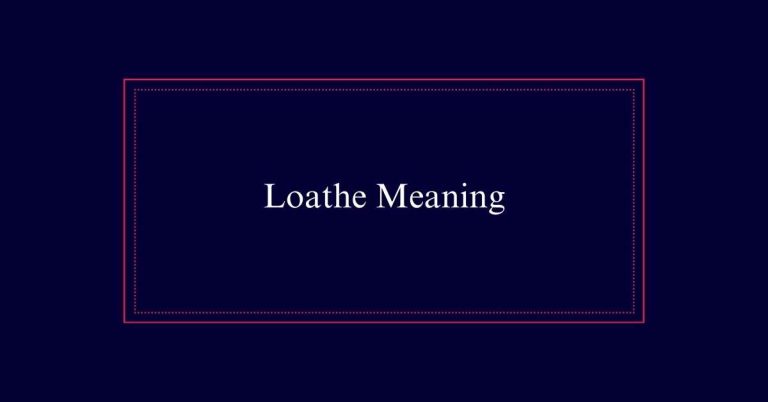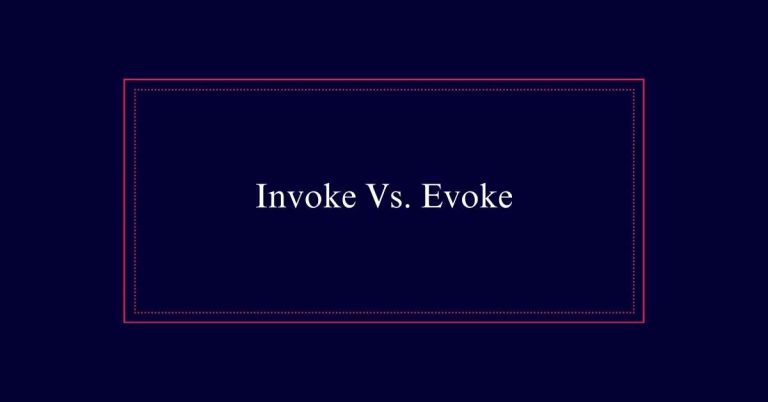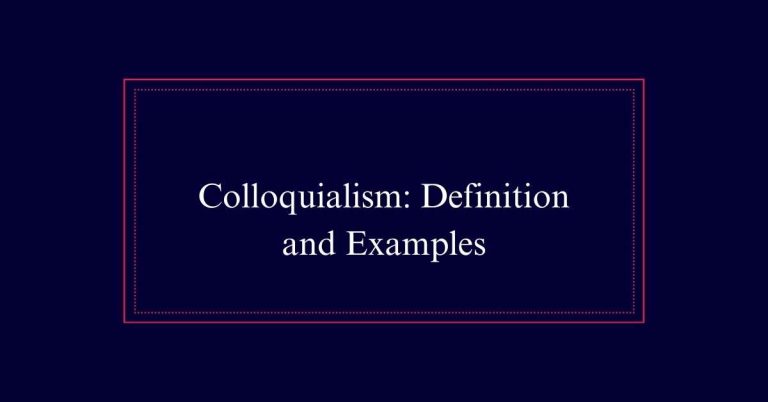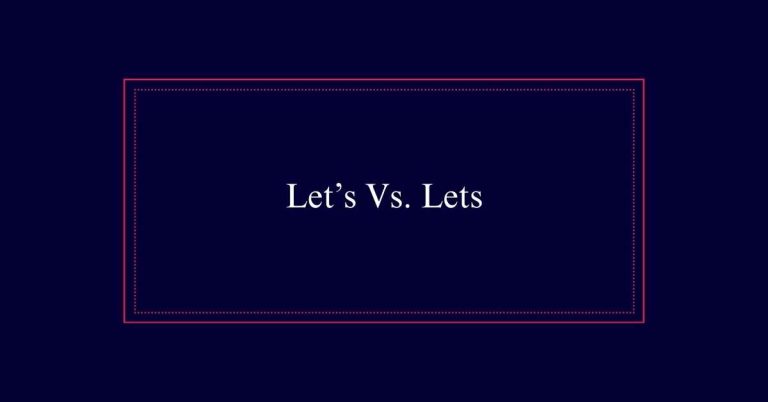Accept Vs. Except
‘Accept’ means to willingly receive or agree to something. For example, you might accept a job offer or accept an award. It conveys agreement or positive reception. On the other hand, ‘except’ indicates an exclusion or an exception. For instance, you might say ‘Everyone is invited except John,’ which means John is not included.
Definition of ‘Accept’
‘Accept’ means to readily receive or take something that is offered. This term can also express approval or recognition. For example, when someone offers you a gift, you accept it by taking it willingly.
In a professional setting, you might accept a job offer, indicating your agreement to the terms presented. As a verb, it is vital in conveying actions of agreement or reception.
The opposite of ‘accept’ is to refuse or reject. For instance, if you do not agree with an idea, you might reject it instead.
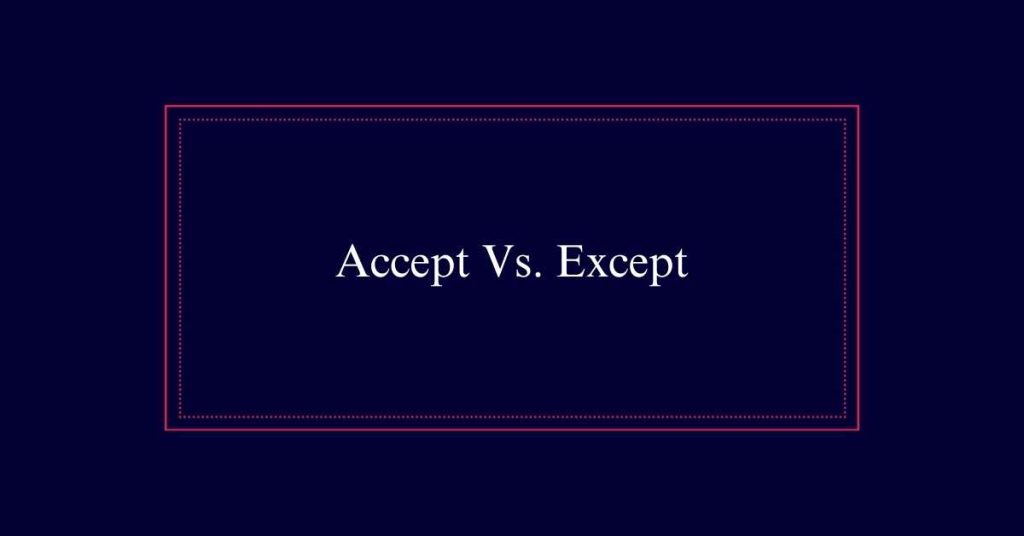
Definition of ‘Except’
‘Except’ is a term used to introduce exclusions or exceptions to a general statement. It is essential for clarifying what is not included in a given context.
For instance, if you say, ‘Everyone is coming to the meeting except John,’ you are specifying that John is the one person not attending.
‘Except’ can function as both a preposition and a conjunction. As a preposition, it might appear in a sentence like, ‘All the rooms are occupied except this one.’ As a conjunction, it could be used as, ‘She would go, except she has other plans.’
Usage of ‘Accept’
In various contexts, ‘accept’ is employed to indicate the act of willingly receiving or agreeing to something offered. This verb is versatile and appears in diverse situations. For example, one might accept a gift, an invitation, or an idea. Each usage implies a positive response and a readiness to embrace what is presented.
Consider the following scenarios to visualize the use of ‘accept’:
- A person accepts a job offer: They agree to take the position.
- A student accepts a scholarship: They acknowledge and receive the financial aid.
- A community accepts a new member: They welcome and include the individual.
Usage of ‘Except’
When using ‘except,’ it is important to understand its role in indicating exclusion or exceptions. ‘Except’ is employed to specify what is not included or to highlight exceptions to a statement. As a preposition, it means ‘excluding’ or ‘other than.’ As a conjunction, it introduces a clause describing an exception.
| Usage | Example Sentence |
|---|---|
| Preposition | All students except John attended. |
| Conjunction | I would go, except I am busy. |
| Clarification | Everyone was happy except for me. |
Examples With ‘Accept’
Now that we have explored ‘except,’ let’s look at how to use ‘accept’ correctly. ‘Accept’ is a verb meaning to receive or take something willingly. It can also indicate approval or agreement.
Here are some examples to illustrate its usage:
- Accept a gift:
‘She was happy to accept the birthday gift from her friend.’
- Accept an invitation:
‘He decided to accept the invitation to the wedding.’
- Accept a proposal:
‘The company decided to accept the merger proposal after careful consideration.’
Examples With ‘Except’
How can ‘except’ be used accurately in sentences to indicate exclusions or exceptions?
‘Except’ is often used to clarify what is not included in a statement. For instance, ‘Everyone is invited to the meeting except John’ highlights that John is excluded from the invitation.
Another example is, ‘All the books are available except the new release,’ indicating the new release is not included.
‘Except’ can also function as a conjunction: ‘I would go, except I have a prior commitment.’ This shows the reason for not going is the prior commitment.
Combining ‘Accept’ and ‘Except’
Combining ‘accept’ and ‘except’ in a sentence can enhance clarity by acknowledging both inclusion and exclusion simultaneously. This usage is useful when specifying what is being received or agreed upon and what is not. For example, a sentence could read, ‘I will accept all the terms except the third condition.’ Here, ‘accept’ indicates agreement, while ‘except’ highlights the exclusion.
Consider these instances:
- ‘She accepted all the gifts except the fragile vase.’
- ‘He accepted the job offer except for the relocation clause.’
- ‘They accepted everyone’s opinion except John’s.’
Clarifying ‘Accept’ and ‘Except’
Understanding the nuances between ‘accept’ and ‘except’ is essential for clear communication. ‘Accept’ means to receive something willingly, like accepting a gift or a job offer. It shows approval or agreement. For example, ‘She accepted the award with gratitude.’
On the other hand, ‘except’ indicates exclusion. It is used to specify what is not included in a statement. For example, ‘Everyone arrived on time except John.’
Comparing ‘Accept’ and ‘Except’
Often, the distinction between ‘accept’ and ‘except’ hinges on their different roles in a sentence. ‘Accept’ functions as a verb, indicating the action of receiving or agreeing to something.
In contrast, ‘except’ serves as a preposition or conjunction, introducing an exclusion or exception to a statement. Consider the following imagery to aid understanding:
- Imagine a person receiving a gift; they ‘accept’ it.
- Picture a list of invitees where one name is crossed out; that name is the ‘exception’.
- Think of a door that says ‘No Entry’ to everyone ‘except’ staff.
Practical Tips for Usage
Mastering the correct usage of ‘accept’ and ‘except’ can greatly enhance clarity in your writing. Here are practical tips to help you.
First, remember ‘accept’ is a verb meaning to receive or agree. Use it in contexts like ‘I accept your offer.’
Second, ‘except’ means to exclude and is used as a preposition or conjunction. For example, ‘Everyone is coming except John.’
A good mnemonic is: ‘Accept’ starts with ‘A’ for action (receiving), and ‘except’ starts with ‘E’ for exclusion.
Always double-check sentences where these words appear. If you mean to include, use ‘accept.’ If you mean to exclude, use ‘except.’


